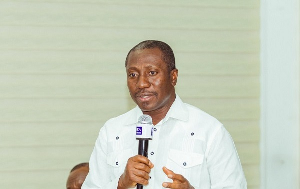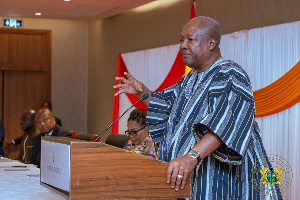The future of Ghana’s six-month-old bailout programme with the International Monetary Fund (IMF) remains uncertain as the Minority in Ghana’s Parliament heads to the law courts.
The Group is set to seek an interpretation of the law on loans contracted by government and compel government to submit the agreement to Parliament for approval.
As it stands now if a ruling is given in favour of the Minority, the deal could be heading for Parliament for an approval or otherwise.
According to experts, the programme could be derailed if Parliament fails to approve it and the worst thing is that funds already disbursed by the IMF cannot be refunded.
Legal experts on the minority side contend that Ghana’s 1992 Constitution demands that loans contracted by government must go before Parliament and be approved before disbursement commences.
Indeed, Article 181 states in clause (1) that “Parliament may, by a resolution supported by the votes of a majority of all the members of Parliament, authorise the government to enter into an agreement for the granting of a loan out of any public fund or public account.”
Section (2) of the same article says “An agreement entered into under clause (1) of this article shall be laid before Parliament and shall not come into operation unless it is approved by a resolution of Parliament.”
The constitution further states in clause (3) that “No loan shall be raised by the Government on behalf of itself or any other public institution or authority otherwise than by or under the authority of an Act of Parliament.
It states that “an Act of Parliament enacted in accordance with clause (3) of this article shall provide that the terms and conditions of a loan shall be laid before Parliament and shall not come into operation unless they have been approved by a resolution of Parliament.”
The bailout was to help in the country’s debt sustainability, restore market confidence and revive Ghana’s ‘transformational agenda.'
So far, $233.1 million has been disbursed by the IMF since the Fund approved the government’s three-year programme in April this year.
According to the Minority, there is evidence to show that the IMF facility was an agreement between the government of Ghana and the Fund and not as the Majority has sought to explain, “between the Fund and the Bank of Ghana (BoG).”
They maintain that the use of the word ‘credit’ in Extended Credit Facility (ECF) as the programme refers to implies a loan and the constitution clearly stipulates how loans should be approved prior to disbursement.
The letter of intent written to the IMF in August 2015 by government which was jointly signed by the Finance Minister, Seth Terkper and Governor of the Bank of Ghana (BoG) Dr Henry Kofi Wampah stated in part that “In support of its policies, the government requests that the Executive Board of the IMF completes the first review of Ghana’s ECF arrangement and approves disbursement of the second tranche of the loan, based on the successful implementation of all but one performance criteria and a satisfactory implementation of key structural reforms.”
The Minority in Parliament last week raised concerns over the IMF deal in what they described as a breach of the 1992 Constitution since according to them, the three-year Extended Credit Facility (ECF) did not receive parliamentary approval prior to its implementation.
After calling on the Bretton Woods institution to cease further disbursements of funds pending Parliamentary approval, the Minority appealed to President John Dramani Mahama to cause the Speaker of Parliament to recall the House from recess to debate , approve or reject the loan agreement.
According to the Minority, it is completely wrong for the government to sidestep Parliament in such a major financial agreement with the IMF, stressing that in Greece where a similar bailout was advanced for the government, all the due processes were followed, including a referendum and scrutiny by Parliament.
Business News of Thursday, 17 September 2015
Source: The Finder













